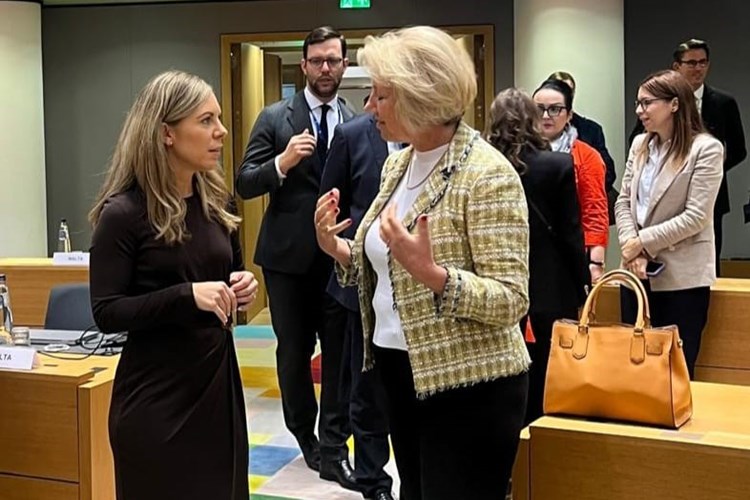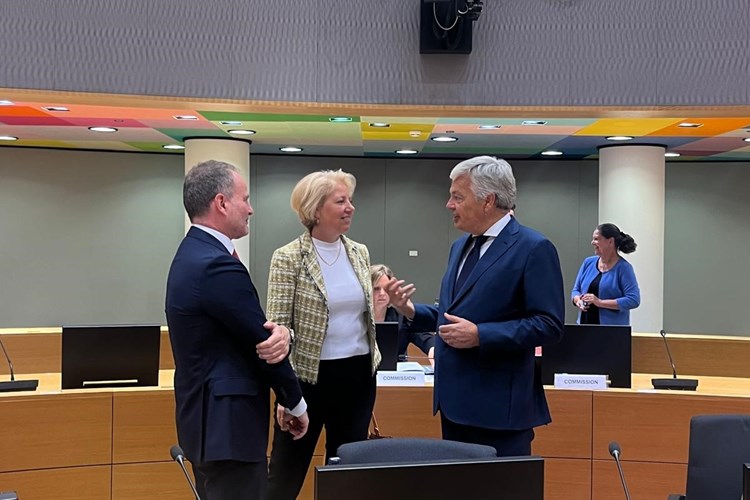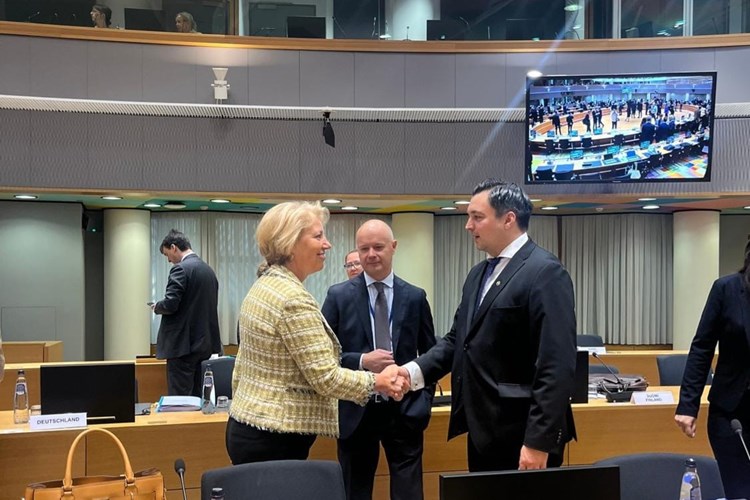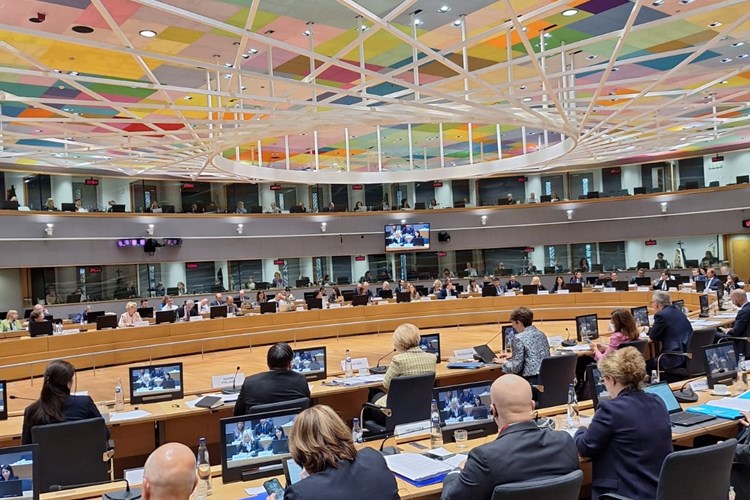- Published: 24.09.2024.
State Secretary for Europe, Andreja Metelko-Zgombić, attends GAC
The Hungarian presidency presented its priorities for the Council. Metelko-Zgombić called for continued support to Ukraine and, in the context of enlargement, backed an ambitious approach, advocating for the convening of the first Intergovernmental Conference with Bosnia and Herzegovina once the necessary conditions are met, as outlined in the European Council's March conclusions. She emphasized the significant importance of demographic challenges and their inextricable link to EU competitiveness, urging for a strengthening of cohesion policy, recognized as crucial for the functioning of the single market and competitiveness in the Letta Report. She also welcomed the focus on agricultural policy, which is key to demographic revitalization in rural areas. Highlighting the need for continued work on migration and effective protection of external borders, the state secretary stressed the necessity for Western Balkan countries to align with the EU visa policy and implement readmission agreements.
As part of the regular Annual Rule of Law Dialogue in the EU, a horizontal discussion was held based on the European Commission’s Rule of Law Report from July. Metelko-Zgombić welcomed the continuation of the dialogue, which she described as an effective preventive tool where member states exchange experiences and good practices on equal footing. She noted with satisfaction the increased compliance with the report's recommendations, which stood at 68% this year compared to 65% last year.
For the first time, the European Commission’s Rule of Law Report included certain candidate countries. Member states, alongside representatives from Albania, Montenegro, North Macedonia, and Serbia, discussed general rule of law trends in these states. In her remarks, the state secretary stressed the importance of the negotiation process, which examines rule of law issues more broadly and deeply than the Commission’s annual report. She underscored the need to address the non-prosecution of war crimes, especially at a high level, the rights of victims, avoiding jurisdictional conflicts (i.e., eliminating so-called regional jurisdiction), and strengthening the fight against corruption and organized crime. She also highlighted the importance of media freedom and independence, combatting hate speech, biased reporting, and misinformation.
The Council began preparing for the European Council meeting on 17-18 October by exchanging views on the draft agenda. Key discussion topics for the October leaders' meeting include Ukraine, the Middle East, and competitiveness.
In this context, Metelko-Zgombić announced that Prime Minister Plenković would inform the European Council of his recent visit to Kyiv, where he attended the fourth summit of the International Crimea Platform and presented Croatia’s 11th aid package to Ukraine. She also mentioned the upcoming Ukraine-Southeast Europe summit on 9 October in Dubrovnik. The state secretary emphasized the importance of leaders discussing EU competitiveness, which will be based on Mario Draghi's report, containing valuable but complex proposals. She noted that future discussions on this topic must include demographic issues, as a more competitive Europe inevitably depends on human capital. A strong cohesion and sustainable agricultural policy were highlighted as vital for a stronger and more competitive Union. Increased investments are necessary to boost EU competitiveness, including through mobilizing the private sector. Public financing for European public goods, such as cross-border infrastructure projects, joint procurement of rare raw materials, and border management, was also supported.
Press releases
As part of the regular Annual Rule of Law Dialogue in the EU, a horizontal discussion was held based on the European Commission’s Rule of Law Report from July. Metelko-Zgombić welcomed the continuation of the dialogue, which she described as an effective preventive tool where member states exchange experiences and good practices on equal footing. She noted with satisfaction the increased compliance with the report's recommendations, which stood at 68% this year compared to 65% last year.
For the first time, the European Commission’s Rule of Law Report included certain candidate countries. Member states, alongside representatives from Albania, Montenegro, North Macedonia, and Serbia, discussed general rule of law trends in these states. In her remarks, the state secretary stressed the importance of the negotiation process, which examines rule of law issues more broadly and deeply than the Commission’s annual report. She underscored the need to address the non-prosecution of war crimes, especially at a high level, the rights of victims, avoiding jurisdictional conflicts (i.e., eliminating so-called regional jurisdiction), and strengthening the fight against corruption and organized crime. She also highlighted the importance of media freedom and independence, combatting hate speech, biased reporting, and misinformation.
The Council began preparing for the European Council meeting on 17-18 October by exchanging views on the draft agenda. Key discussion topics for the October leaders' meeting include Ukraine, the Middle East, and competitiveness.
In this context, Metelko-Zgombić announced that Prime Minister Plenković would inform the European Council of his recent visit to Kyiv, where he attended the fourth summit of the International Crimea Platform and presented Croatia’s 11th aid package to Ukraine. She also mentioned the upcoming Ukraine-Southeast Europe summit on 9 October in Dubrovnik. The state secretary emphasized the importance of leaders discussing EU competitiveness, which will be based on Mario Draghi's report, containing valuable but complex proposals. She noted that future discussions on this topic must include demographic issues, as a more competitive Europe inevitably depends on human capital. A strong cohesion and sustainable agricultural policy were highlighted as vital for a stronger and more competitive Union. Increased investments are necessary to boost EU competitiveness, including through mobilizing the private sector. Public financing for European public goods, such as cross-border infrastructure projects, joint procurement of rare raw materials, and border management, was also supported.




.jpg?preset=glavnislider)


